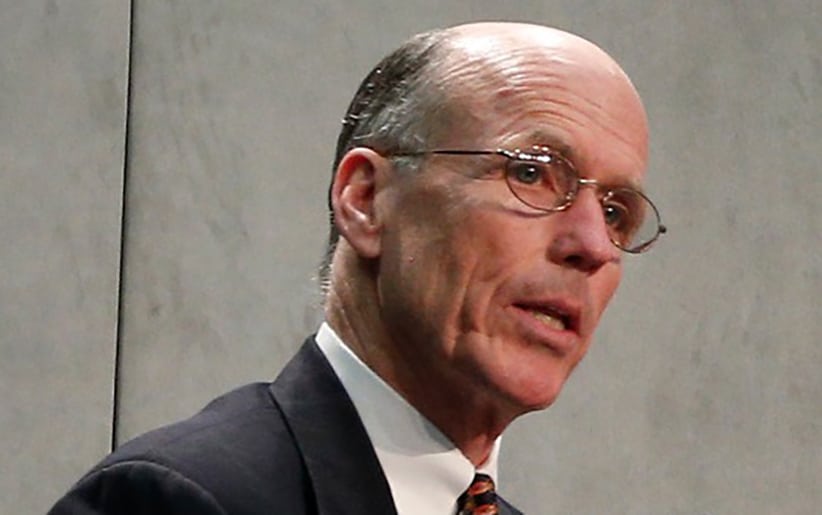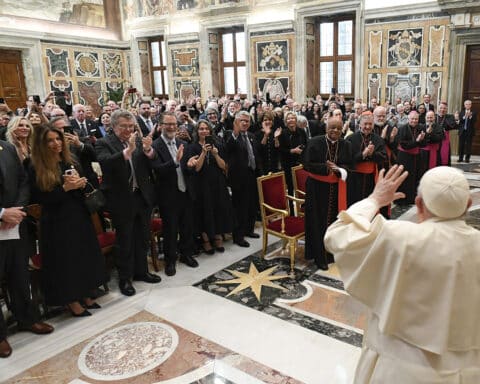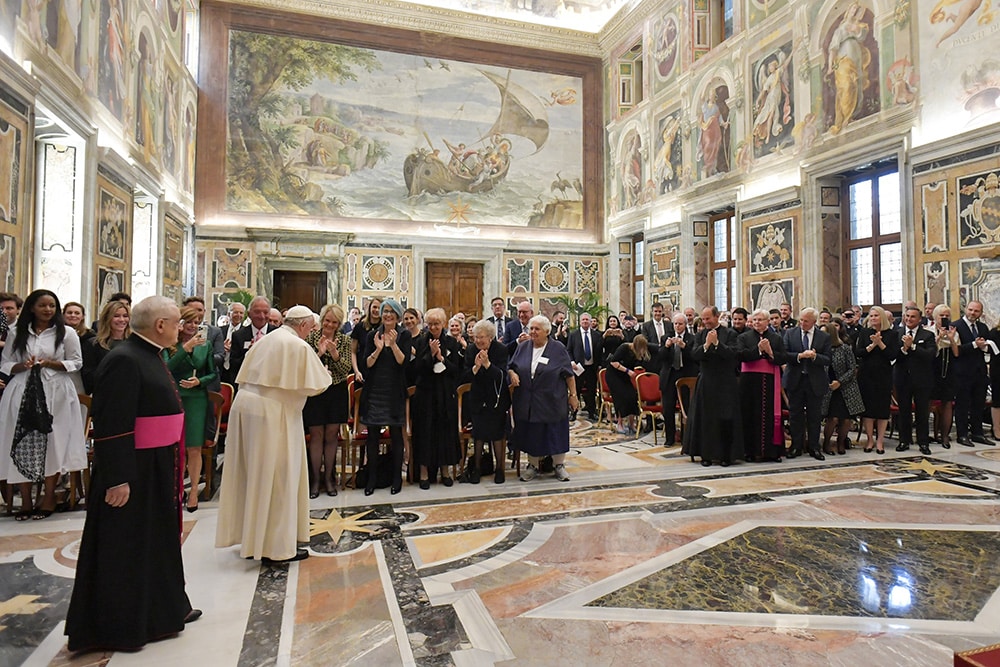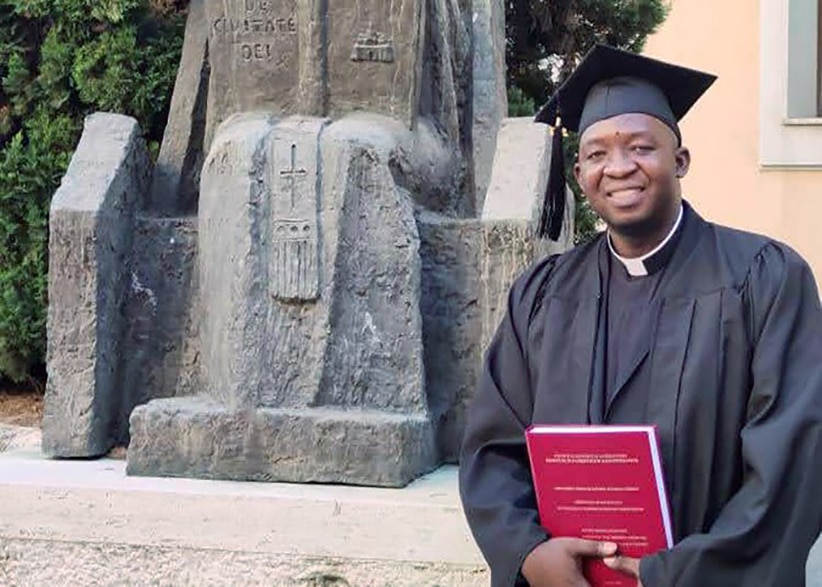Eustace Mita, a successful Philadelphia businessman and devout Catholic, is the first lay president of the Papal Foundation, a nonprofit that provides millions of dollars in grants every year to Church organizations in developing countries.
“This isn’t something I think you can just walk into,” said Mita, 65, who has been a member of the Pennsylvania-based Papal Foundation’s Board of Trustees for more than a decade. Mita told Our Sunday Visitor that his business experience and his personal faith journey have prepared him for his new assignment.
“As you know, Vatican II said it was time for the laity to take more of a responsibility and help our clergy in the guidance and leadership of the Church,” Mita said. “To me, this is just another huge step in that direction.”
Controversial money, leaders
Mita, an entrepreneur and developer who was a papal honoree for his leadership role in the 2015 World Meeting of Families in Philadelphia, is taking the helm of the Papal Foundation in what has been a challenging time of transition for the organization. Its two most recent presidents — Bishop Michael Bransfield and former cardinal Theodore McCarrick — were high-profile churchmen who have since fallen into disgrace. Questions have been raised as to whether they used their position to wield influence in the Church and shield themselves from accountability.
Also, an internal dispute over a controversial $25 million grant to shore up a struggling Roman hospital spilled out into the press two years ago, prompting the Holy See to decline the grant’s final $12 million and the Papal Foundation’s leadership in March 2018 to announce a period of reflection and a reevaluation of its mission.
In addition, the FBI has reportedly questioned Papal Foundation members in recent weeks about McCarrick, who was removed from the clerical state last year after a Vatican tribunal convicted him of sexual abuse and other canonical crimes. Catholic News Agency reported in early January that the FBI appeared to be investigating the possibility of McCarrick abusing his position as president and misspending the organization’s funds.
Mita told Our Sunday Visitor that the Papal Foundation has conducted its own internal audit and brought in outside auditors. He said the auditors found no evidence of financial wrongdoing by McCarrick or Bransfield, the former bishop of West Virginia who resigned in 2018 amid allegations that he misspent Church funds and sexually harassed priests and seminarians.
“The good news is that neither Cardinal McCarrick nor Bishop Bransfield had the authority to sign checks,” Mita said. “In all the years we looked, other than one plane ride to a funeral, there was nothing we found that was out of order.
“We cannot speak for any other organizations in which they were involved. But certainly with the Papal Foundation, there was no wrongdoing on their part,” said Mita, who expects that the highly anticipated Vatican report on McCarrick’s ecclesial career will make it difficult for the foundation to do its work.
“It already has made our job more difficult, because so much has come out about ex-cardinal McCarrick,” Mita said. “The fact of the matter is what he did was terribly wrong, and certainly we were unaware of what was going on in his life outside of the Papal Foundation and outside of the hierarchy of the Catholic Church. It was a tremendous blow to us.”
Foundation reforms
In 1988, McCarrick co-founded the Papal Foundation to meet the desires of Catholic clergy and laity in the United States who wanted to support the papacy and its favored works of ministry and evangelization around the world. The foundation raises millions of dollars every year through its benefactors, who are known as the Stewards of St. Peter.
Since its founding, the Papal Foundation has awarded more than $120 million through 1,900 grants in 121 countries. The organization also provides scholarships to help seminarians, priests, laity and religious brothers and sisters from developing countries to study at pontifical universities in Rome.
“Most of our grants go to Third World countries,” said Mita, who noted that the Papal Foundation in 2020 will award more than $12 million in grants to help people suffering from trauma and food insecurity. The grants will also be used to build churches and retreat centers for youth development, to minister to people with disabilities, to save the lives of newborns in need of urgent medical care and to promote human rights around the world.
“Most of those grants go to orphanages, to feeding people and building churches in Third World countries,” Mita said. “There is much good that these grants have been able to accomplish.”
Regarding the controversial $25 million grant and published reports that have since raised questions about its intent and how it was approved, Mita said the foundation has rewritten its bylaws and implemented several other reforms — including having a board of trustees that is now comprised of two-third lay members — over the last 18 months to prevent that from happening again.
“We had never before given an amount that large away. Usually, we’re in the $100,000 to $150,000 range, and we plan to continue with that size of giving in the future,” Mita said, adding there are also “many failsafes and many preventative processes that have been put in place.”
Brian Fraga is a contributing editor for Our Sunday Visitor.




